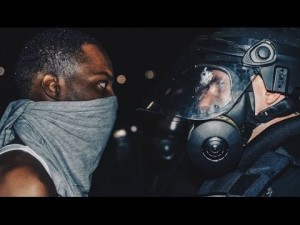Close to Compromise? Reflections from the Charlotte Panel
On Wednesday evening, a law school classroom was packed with a diverse range of students, faculty, and community members. The panel at the front of the room was also packed with a diverse range of experts–law faculty, religious experts, a sociologist, and the Assistant Chief of the Winston-Salem Police. The large assorted group was collectively addressing the same issue: police brutality and civil unrest surrounding recent events in Charlotte.
One of the most controversial statements came from law professor Shannon Gilreath. He argued that the police force is under-resourced and fosters career opportunities that are appealing to “for lack of a better word: low-income racists” who have never had access to status or power that wasn’t physical. While it is indisputable that the current justice system needs reform, is providing more resources to those misusing authority the solution?

Volkov defines the state “as a particular mode of the use of force, as itself an effect of a certain dynamic relationship of forces that have reached a temporary equilibrium” (21). The United States police force certainly is an extension of the state in this country; thus, is providing the means to even more power the way to reduce violence? When do the police cross over into organized crime as the ruling state in post-soviet Russia did?
Ta-Nehisi Coates reminds us that “Violence is not even in our past. Violence continues today.” Additionally he writes, “certain things are acts committed by thugs, and certain things are the acts committed by law.” Violence committed by the state is legitimate and valid, yet protests that turn violent are insubordination and anarchy. Therefore, how do we reconcile an alleged lack of resources with the potentially already excessive possession of power?